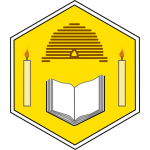
- This event has passed.
Citizen Science and Public Participation in Bee Research – a talk by Robert Brodschneider
20th January 2021 @ 7:30 pm - 8:30 pm GMT
Event Navigation
This event is a virtual event, hosted on Zoom.
Current CABK members will receive details of how to attend by email in advance.
Non-members are welcome to attend, for a small fee of £3.
Registration for this event is now open – please use the ink below
https://us02web.zoom.us/webinar/register/5316081605806/WN_rM3WJHHETAupd8F1MWXHsA
Dr Robert Brodschneider

Robert Brodschneider
Robert Brodschneider is a researcher at the Institute of Biology of the University of Graz, Austria and lecturer of honey bee biology and pathology at the University of Natural Resources and Life Sciences Vienna and the University of Veterinary Medicine, Vienna. Since his master and PhD thesis he is studying honey bees. In his research he focusses on the nutrition of honey bees at adult, larval and colony level. In 2008 he established the investigation of colony losses in Austria, and since 2014 he has been co-chair of the international colony losses monitoring group of the honey bee research association COLOSS, where he is also an executive committee member since 2013. Robert is really interested to involve beekeepers in scientific research, which he conducts within the framework of Citizen Science.
Citizen Science and Public Participation in Bee Research
Citizen science is becoming more and more popular in the environmental sciences, monitoring and ecology.

Locations of experimental colonies, INSIGNIA Year 2
There are many definitions and examples of citizen science, but common characteristics are the recruitment and training of participants by research institutions. In entomology, citizen science has a long tradition. Provided that scientific principles are followed, the findings of citizen science studies can be published in peer reviewed journals. Beekeepers can contribute to research in different ways, ranging from providing data for crowdsourcing investigations, to helping by sample collection. Beekeepers have knowledge of honey bee husbandry, own livestock and have equipment for colony manipulations. With an estimated number of 600,000 beekeepers in Europe, this constitutes a huge pool of potential volunteers for scientific studies. In this presentation I will show examples of how beekeepers have participated in research, what scientific findings could be derived from these, and finally, what makes good practice in citizen science, including the motivations of beekeepers to participate.
